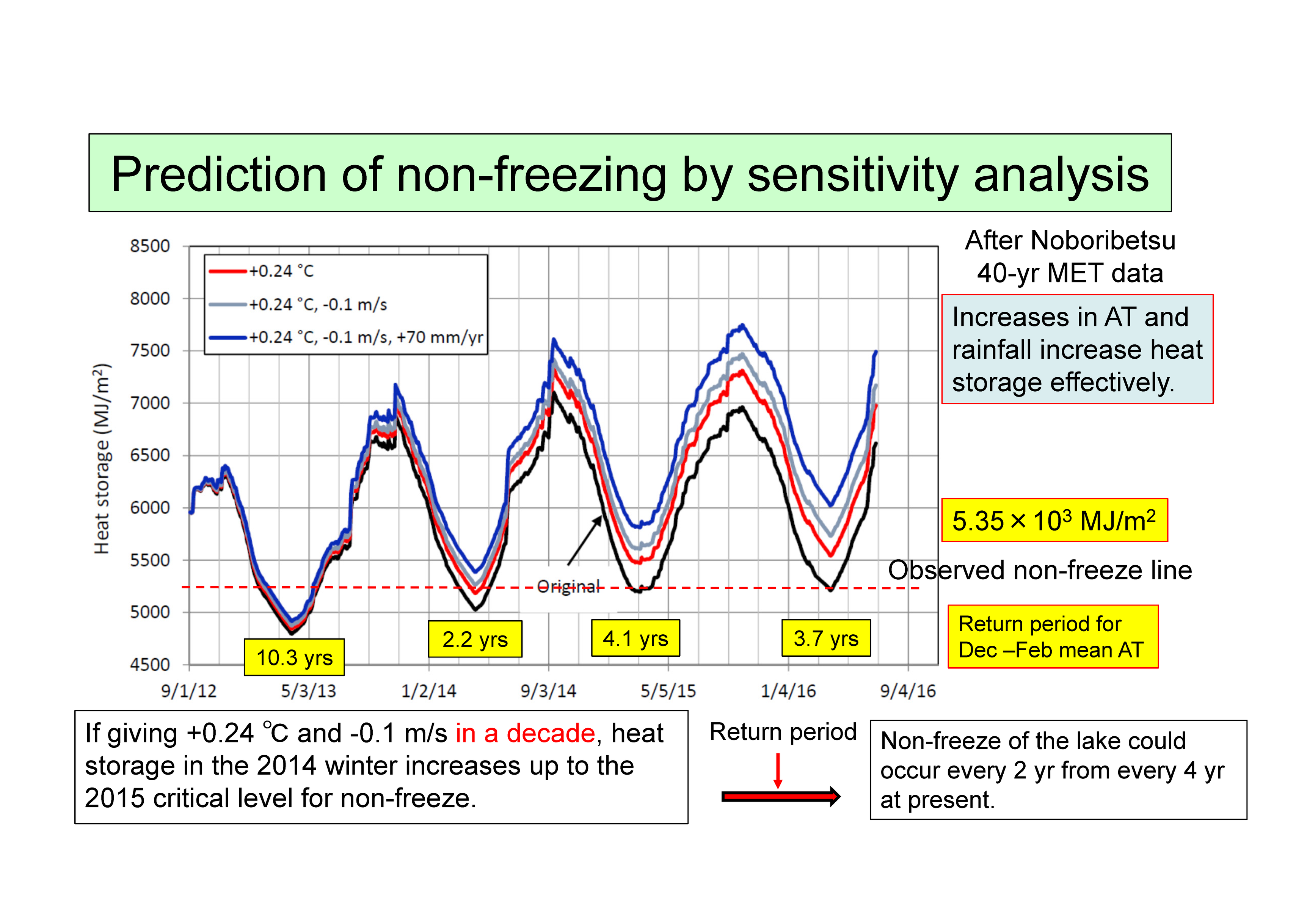A temperate deep lake, Lake Kuttara, Hokkaido, Japan (148 m deep at maximum) was completely frozen every winter in the 20th century. However, unfrozen conditions of the lake over winter occurred four times in the 21st century, which is probably due to global warming. In order to understand how thermal regime of the lake responds to climate change, its heat storage change was calculated by estimating heat budget of the lake and monitoring water temperature at the deepest point for September 2012–June 2016. As a result, temporal change of the heat storage from the heat budget was very consistent with that from the direct temperature measurement (determination coefficient R2 = 0.827). The 1978–2017 data at a meteorological station near Kuttara indicated that there are significant (less than 5% level) long-term trends for air temperature (0.024 °C/yr) and wind speed (−0.010 m/s/yr). A sensitivity analysis for the heat storage from the heat budget estimate and an estimate of return periods for mean air temperature in mid-winter allow us to conclude that the lake could be unfrozen once per about two year in a decade.

